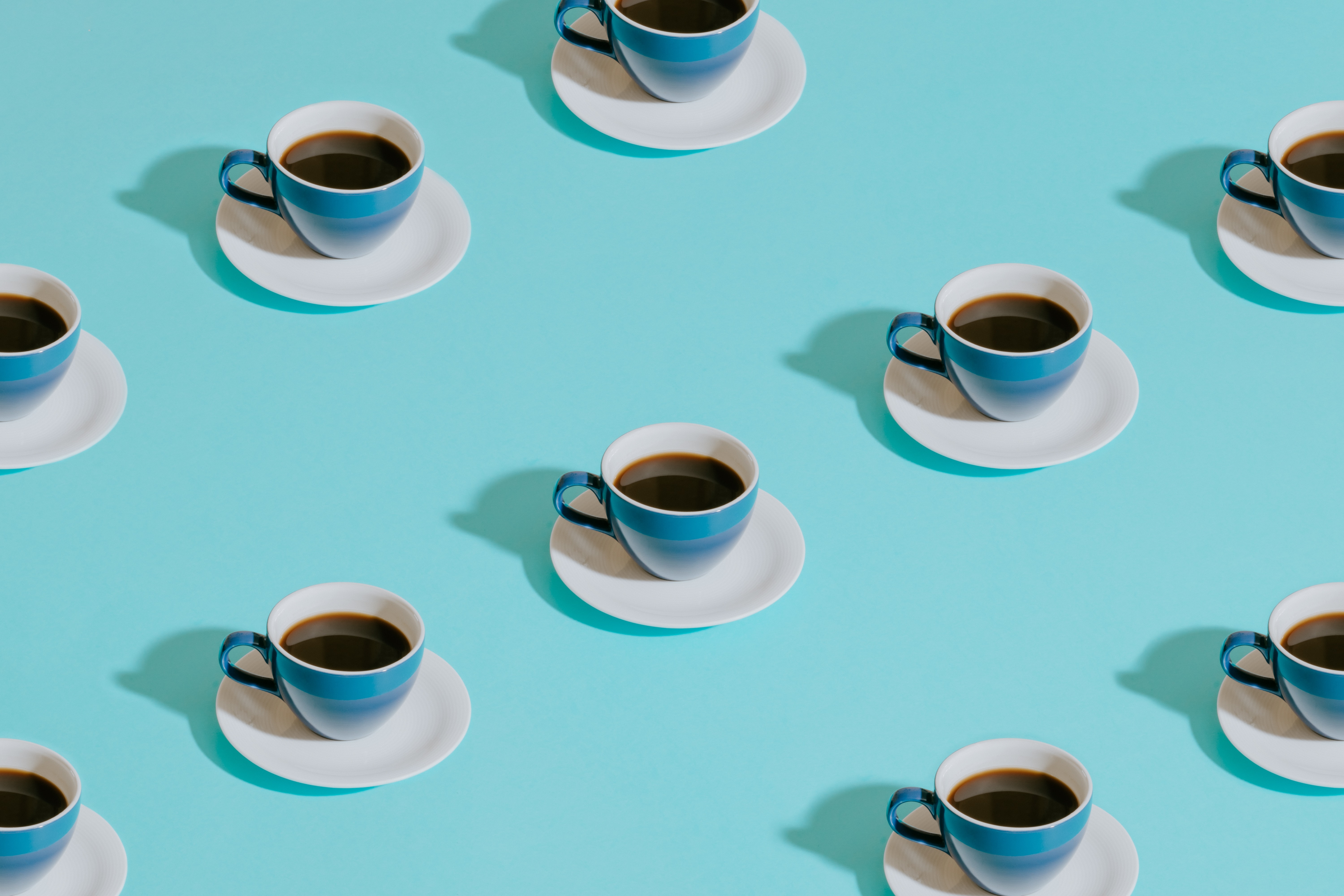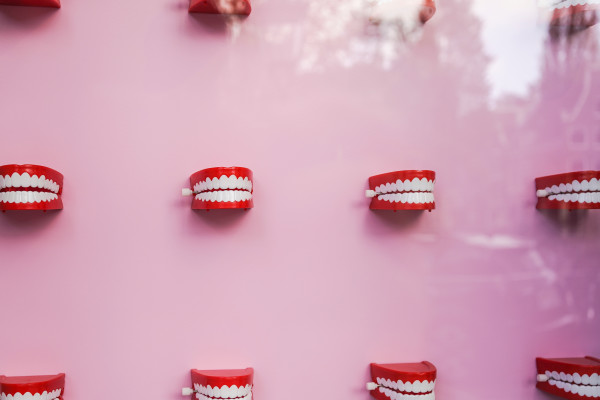How does caffeine affect our hormones and performance?
a year ago
Cycle syncinga year ago
Cycle syncing
Could your morning cup of Joe affect your monthly cycle? Here’s everything you need to know about the power of your morning brew
Reviewed by: Dr Emma Ross
Flat whites, lattes, piccolos, iced cappuccinos, americanos – you name it, coffee has become a culture with a capital C, with 80% of us taking some form of caffeine each day. For some, that caffeine buzz is essential to kick-starting the day, while for others it’s a recipe for the jitters.
But, what does the science say when it comes to caffeine and its effect on our menstrual cycles and fitness performance? Health Journalist Jane Druker has an espresso or two with Jennis Physiologist Dr Emma Ross and GP Dr Sarah Brewer…
In its purest form, caffeine is a white powder with a bitter taste, which acts as a powerful stimulant that speeds up thinking, boosts mood and motivation. It is also a psychoactive agent ie. a drug which, when ingested, affects the way our brain functions.
The way caffeine works on your brain is that it inhibits a natural neurotransmitter called adenosine (a naturally calming hormone), which naturally builds up throughout the day, making you feel tired as the day progresses. Caffeine blocks this process by binding to adenosine receptors, which in turn makes you feel more alert and vigilant rather than sleepy.
“Caffeine is ingested rapidly, taking about 45 minutes to an hour to be completely absorbed,” explains GP Dr Sarah Brewer. “Although more research needs to be done, it’s believed that because our hormonal system and autonomic nervous systems are different to our male counterparts, we are more sensitive to caffeine’s effects and take longer to process it - all of which can amp up its effects.”
It’s worth being mindful of your caffeine consumption if you suffer from cramping
Although caffeine energises us, it also increases our dual stress hormones: norepinephrine and epinephrine, which are in charge of elevating both blood pressure and heart rate. When these hormone levels are increased, the blood vessels are restricted, which can cause tension in our bodies. It’s this tension that we’re particularly susceptible to during our Pre-menstrual phase.
“It’s also well documented that too much caffeine can lead to jittery side effects and potentially exacerbate feelings of anxiety, so it’s worth being mindful of your caffeine consumption if you suffer from cramping, but also bloating, fatigue, mood changes, anxiety and headaches during your period or Pre-menstrual phases,” says Dr Emma Ross.
Do you find that the caffeine buzz is less intense after a cup of tea? Then here’s the science behind that.
Although tea works in a similar way to coffee, the amount of caffeine in tea or coffee can vary significantly depending on the origin, type and preparation.
Generally tea leaves contain 3.5% caffeine, while coffee beans have 1.1–2.2%. However, the coffee brewing process uses hotter water, which extracts more of the caffeine from the beans. In addition, typically, you use more coffee beans than you’d use tea leaves for a drink, so 1 cup (237 ml) of brewed coffee generally has more caffeine than a basic builder’s tea.
Every woman is different and responds differently to caffeine, so it’s difficult to confirm its effects on our menstrual cycles without more thorough research. However, in the studies that are available, here’s what we know…
A recent analysis of 20 studies confirmed that caffeine can improve training intensity and performance
According to a large August 2013 study of more than 2,500 people , higher caffeine intake was associated with shorter menstrual cycles (meaning less time in between your period).
A December 2014 study found that some people who drank caffeinated beverages daily, particularly coffee, were at higher risk for experiencing prolonged periods.
“When it comes to the effect of caffeine on our menstrual cycles, as with a lot of women’s health issues, there isn’t enough data to prove the exact impact, so the best way of tracking how it affects you is to be conscious of your own cycle and your personal sensitivity to it,” says Dr Emma.
A recent analysis of 20 studies confirmed that caffeine can improve training intensity and performance, specifically in endurance cycling and running.
“Because caffeine works on the nervous system, it affects the way your body ‘perceives’ things,“ says Dr Sarah. “Because of this, a single cup before physical activity can help to increase endurance and change your pain threshold so that you can push your muscles harder without experiencing distress."
A study at Birmingham University found that a dose of as little as 0.5mg of caffeine per kilo of body weight was enough to have a significant measurable effect on cycling performance. The University of Alicante went even further, discovering that riders dosed with 0.7mg per kilo of body weight did the best test , riding considerably longer than their less-hopped-up rivals.
It’s not just during the exercise activity itself that the benefits of coffee have been documented.
Drinking an americano at the end of your session (as long as you don’t finish too late in the day, that is) may help your body recover better. “[Caffeine] has been seen to help speed up recovery by enhancing glycogen replenishment after exercise,” explains Dr Emma.
This was confirmed by a study conducted in Australia, which showed that when cyclists refuelled with carbohydrates and caffeine after a ride, they accumulated 66 per cent more muscle glycogen than riders who consumed only carbs.
Then there’s the impact on our metabolism, says Dr Sarah: “Drinking a cup of coffee containing 200mg caffeine can increase your metabolic rate by 7% during the following three hours, so you burn more fat and generate more heat,” she explains.
Of course, caffeine is no wonder drug and has its downsides, such as giving you an anxious feeling or maddening sleepless nights if you have overindulged (both symptoms that women experience quite often anyway during our Pre-menstrual phases).
A good rule of thumb is to stop taking caffeine-containing food and drinks at least 6 hours before you usually go to sleep. And, note to self, chocolate contains caffeine too!
As with other chemicals, our bodies can also build up a tolerance to caffeine, with reduced effects for those who drink it too often, or low moods when our daily fix is suddenly withdrawn.
“Overall, the good effects associated with the sensible use of caffeine more than outweigh the bad,” says Dr Brewer, "with its antioxidant-enhancing effects potentially prolonging your life.
“ Over twenty studies involving almost 974,000 people , found that people who drank two or more cups of coffee per day were, on average, 14% less likely to die from any cause during the study follow-up periods than those who drank little or no coffee. However, as with most things in life, the key is to drink coffee in moderation.”
 Cycle syncing
Cycle syncing Perimenopause
Perimenopause Perimenopause
Perimenopause Perimenopause
PerimenopauseSign up to learn everything you need to know about CycleMapping, plus how you can live better and feel better through optimising your fitness to you.
This website uses cookies to ensure you get the best experience on our website. Learn more

Sign up for the very latest news on women's fitness, health and hormones, plus be the first to receive exclusive offers and extras